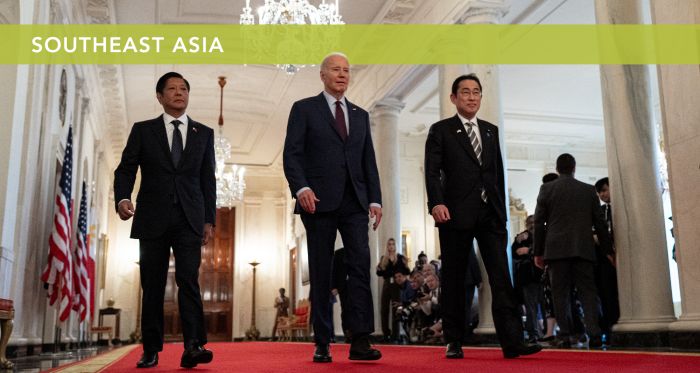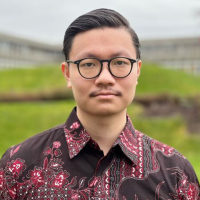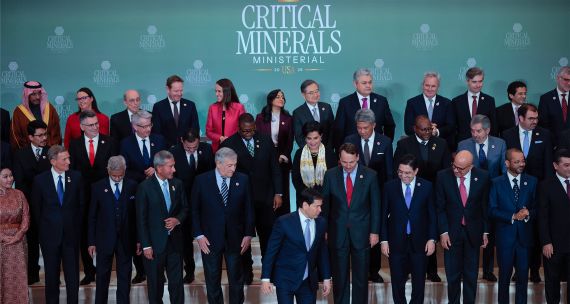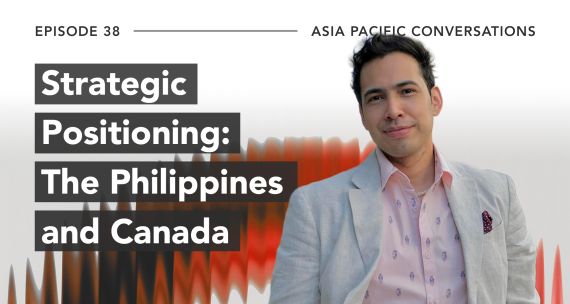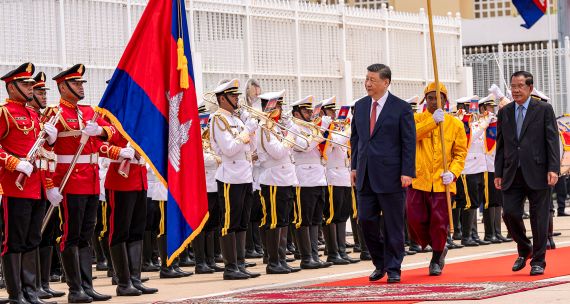The Takeaway
The Philippines is deepening its economic and security co-operation following a historic trilateral summit with the U.S. and Japan in Washington, D.C., on April 11. While Philippines President Ferdinand Marcos Jr. stated that China was not the target of this increased co-operation, the summit took place against the backdrop of intensifying China-U.S. rivalry and growing tensions between Manila and Beijing in the South China Sea.
The South China Sea is not only an important trade route but also a resource-rich area for fisheries, critical minerals, and fossil fuels. Ottawa’s recently published defence policy update creates an opening for Canada to play a more robust role in the region’s security, including in partnership with the Philippines.
In Brief
- Marcos Jr., U.S. President Joe Biden, and Japan’s Prime Minister, Kishida Fumio, released a joint vision statement at the summit’s close, announcing a new trilateral dialogue to enhance their maritime co-ordination. Aside from security matters, the three leaders also discussed co-operation on economic development, climate partnerships, and critical technologies.
- Clashes between Chinese and Filipino coast guard vessels have become more frequent and more alarming in recent years, especially in the area around the Second Thomas Shoal, which is within the Philippines’ exclusive economic zone (EEZ) but claimed by China. The most recent incident took place just days after the April 11 summit and reportedly utilized an AI-controlled water canon with applications in maritime clashes.
- While China is a party to the 1982 United Nations Convention on the Law of the Sea – the legal framework governing the world’s maritime zones and its uses – it continues to make claims that are unlawful as per a 2016 ruling by the Permanent Court of Arbitration at the Hague.
- Aside from the Philippines, China also has territorial disputes in the South China Sea with Brunei, Indonesia, Malaysia, and Vietnam over China’s ‘nine-dash line’ – the line demarcating China’s claim.
Implications
Philippines government continues pivot away from predecessor’s Beijing-friendly approach. Marcos Jr.’s desire to partner with the U.S. and Japan marks a significant shift away from the approach of his predecessor, Rodrigo Duterte. Duterte, president from 2016 to 2022, sought to appease China and played down tensions in the South China Sea through an alleged “gentlemen’s agreement” whereby Duterte informally agreed not to construct military outposts in the disputed region.
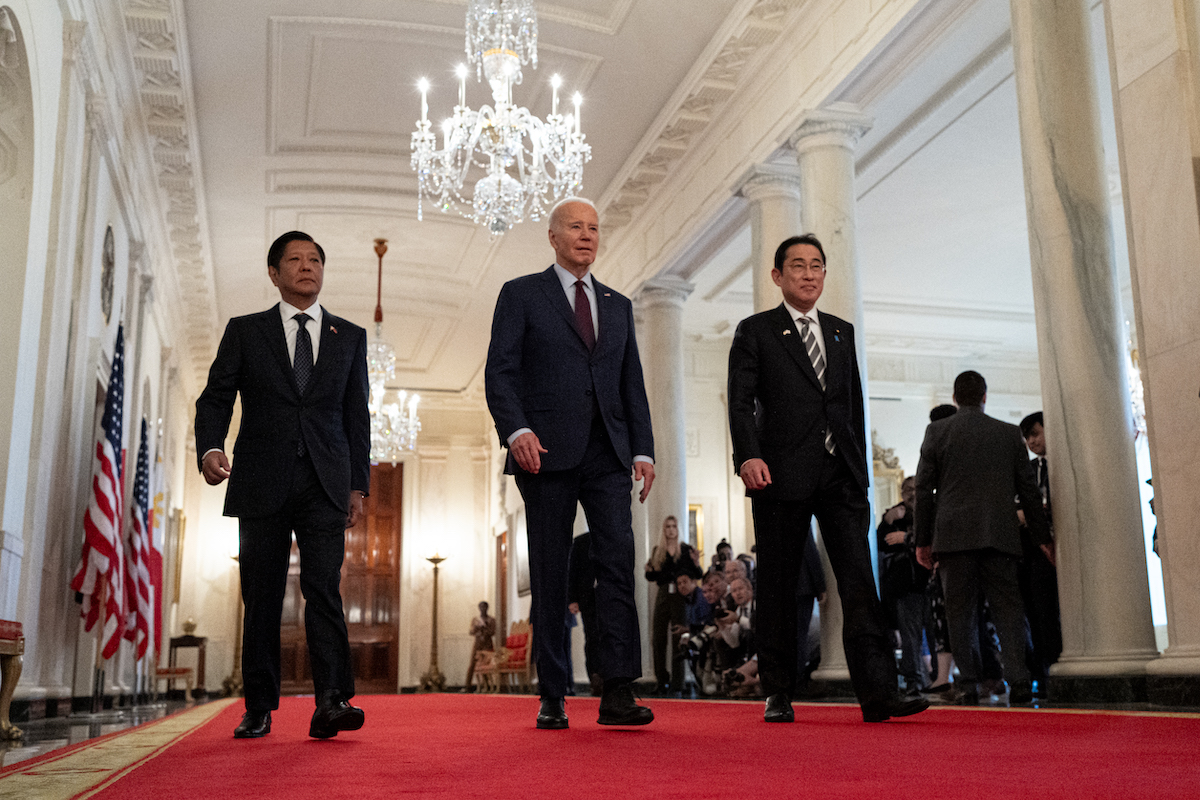
On the day of the recent trilateral summit, Chinese state media published an interview with Duterte in which he condemned the U.S. for its alleged role in the deteriorating relationship between the Philippines and China and accused Marcos Jr. of taking orders from Washington. However, a recent survey suggests that Marcos broadly has the support of the Filipino population; according to that poll by ISEAS-Yusof Ishak Institute, 90 per cent of Filipinos feel that rising tensions in the South China Sea are one of the most pressing concerns facing their country. Additionally, there is strong support for the U.S. among Filipinos; in a 2022 survey, nearly 90 per cent had significant trust in the U.S., much higher than their trust in China.
Expanded role for Canada in South China Sea security. On April 8, Canada released its updated defence policy, which refers to China’s growing aggressiveness in the South China Sea and articulates Canada’s goal of defending “the global rules that govern trade, navigation and overflight, nuclear non-proliferation and human rights.” Canada plans to expand its naval presence in the Indo-Pacific by increasing the number of frigates deployed, engaging in international maritime exercises, and bolstering regional security co-operation. In 2023, Canada conducted three freedom-of-navigation operations in the South China Sea alongside Western allies. One of these operations was jointly performed with the Philippines within its exclusive economic zone.
Canada’s expanded maritime presence in the South China Sea comes as it tries to strengthen its regional partnership with the Association of Southeast Asian Nations (ASEAN). According to the ISEAS survey, Canada ranks 10th among the regional bloc’s most significant partners, but 7th in the Philippines. In 2024, Canada and the Philippines will celebrate their 75th year of diplomatic relations, a potentially opportune time for a more comprehensive partnership.
What’s next
1. China responds militarily and rhetorically
On April 7, China conducted its own combat patrols in the South China Sea, the same day the Philippines participated in joint maritime drills – the Multilateral Maritime Cooperative Activity – with Australia, Japan, and the U.S. During a press conference by China’s Ministry of Foreign Affairs on April 12, Beijing responded to the trilateral meeting in Washington by reiterating its sovereignty in the disputed areas of the South China Sea, again rejecting the decision of the 2016 arbitration.
2. South China Sea could become more prominent on ASEAN agenda
According to Marcos Jr., the Philippines-Japan-U.S. trilateral agreement is set to “change the dynamic” in ASEAN. While it is true that escalating tensions in the South China Sea are becoming a greater geopolitical flashpoint for Southeast Asians, the issue is not raising an equal level of alarm across ASEAN’s 10 member states. Close to 40 per cent of respondents across ASEAN note the issue to be of top concern, but that concern is much higher among claimant states such as the Philippines and Vietnam, whereas non-claimant states like Laos and Myanmar ranked it as less of a concern.
With multiple high-level ASEAN meetings slated to take place later this year, including the ASEAN Foreign Ministers’ Meeting in July and the ASEAN Summit in October, discussions may prominently feature maritime disputes as the bloc grapples with China’s growing presence in the region.
